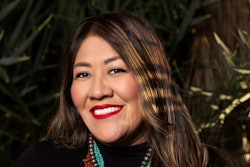For those who are concerned about Americans’ perceptions of higher education, the past few weeks may have been confusing.
A Gallup poll was released, bearing terrible news: only 36% of Americans have “a great deal” or “quite a lot” of confidence in higher education, down 12 percentage points from 2018 and 21 percentage points from 2015, when more than half of U.S. citizens expressed high confidence. 22% of Americans said that they have “little confidence,” more than doubling the 9% who said so in 2015.
At almost the same time, Teachers College at Columbia University released a survey that seemed to augur much better: 69% of Americans said that they view public spending on higher education as an excellent or good investment, and strong majorities reported that higher education has benefits for both individuals and society as a whole. 72% said that higher education contributes to graduates’ personal enrichment and growth, and 71% said that higher ed contributes to advancing graduates’ wealth and success. 73% agreed that higher education plays a role in national prosperity and development.
Observers were left wondering what to make of the contrast. How do Americans really feel about higher education? And how should colleges and universities respond?
The two polls actually have more similarities than may initially be obvious, especially from reporting that focuses on their extremes. The Columbia study, which had the more positive results, showed that perceptions of higher ed have declined since the researchers did a similar survey in 2017: there was a seven-point decrease in the percentage of Americans who saw public spending on higher ed as an excellent or good investment. Both surveys also found sharp disparities in the views of liberals and conservatives, with Republicans becoming more skeptical. And the Gallup survey shows that although confidence in higher ed has decreased, it hasn’t disappeared: the percentage of Americans who said that they had “some” confidence in higher education grew six points, to 40%. But the differences are still stark.
Experts on American perceptions of higher education said that the polls collectively reveal that American views are nuanced. Zach Hrynowski, an education research consultant at Gallup, thought that Americans were differentiating between higher education itself and the systems that organize it.
“The best that I can make sense of this is that it’s a case of separating the product from the seller,” he said. “Americans generally see value in higher education. Whether [they’re] confident in the institutions that are delivering it is a slightly different question.”




















